Methane Mitigation: Bridging Language, Science, Global Citizenship & Community Arts In Climate Abatement
- amanda haran

- Aug 27, 2024
- 7 min read
Updated: Oct 16, 2024
Introduction
I spent a week in Sydney, Australia, at the 12th International Mine Ventilation Congress 2024 in August. Whilst this doesn't appear to be a prominent event for a textile artist, I was there to listen and learn about the reduction of methane emissions to the atmosphere (a subject I've become fascinated with since studying for my Carbon Literacy qualification, addressing my family's polluting legacy as one on the weaving pioneers of the Industrial Revolution, and investigating the history and current practices of mining having relocated to Derbyshire.)
I had the privilege of meeting miners, environmental NGOs, world experts, and academics. Whilst I do not purport to understand the science of this field, I do have a grasp of its basic principles. As a member of human society (and a 'global citizen', which will be probed later in this blog), I advocate fiercely for reducing fossil fuel emissions and the related just transition. Having seen the effects of abruptly stopping coal production in Derbyshire, driving a long-term economic downturn and the associated social shock and deprivation.
I believe in conversation, consideration and compromise to effect 'just' change.
To achieve this, I've had to learn the techno-environmental language in this arena. I want to share a few key components to allow everyone to express their views and understand each other. It's also a valuable aide memoir.
Key Methane Mitigation Terms & Concepts In The World Of Ventilation & Particularly Mining
Greenhouse Gas (GHG)
Certain gases in the atmosphere around us that act to retain/reflect heat energy and gradually increase the world's temperature. The five most abundant GHGs in order of magnitude are:
Water vapour
Carbon dioxide
Methane
Nitrous oxide
Ozone.
Mitigation
The action of reducing the emissions to atmosphere - mitigation of gaseous emissions such as carbon dioxide or methane
Methane
An important GHG with over 84 times the global warming potential of carbon dioxide when first released over a twenty-year timeline. Methane has the chemical formula CH4 (one carbon atom bonded to four hydrogen atoms.)
The coal industry is a significant source of methane emissions, as even abandoned mines can still release it through natural seepage from the coal left in the ground, which is too costly to bring to the surface.
Methane is one of the most important human-generated industrial sources of greenhouse gas emissions. As a gas, it has caused nearly 30% of the rise in global temperatures since the Industrial Revolution.
Coal Mine Methane (CMM)
The term given to flammable natural gasses released from coal and the surrounding rocks due to mining.
Underground Mining
Digging deep into the earth using shafts and tunnels to extract minerals such as coal, leaving the above rock which is not wanted in place. This type of mining is the focus of methane mitigation as you can measure and capture the methane emitted by the industrial process.
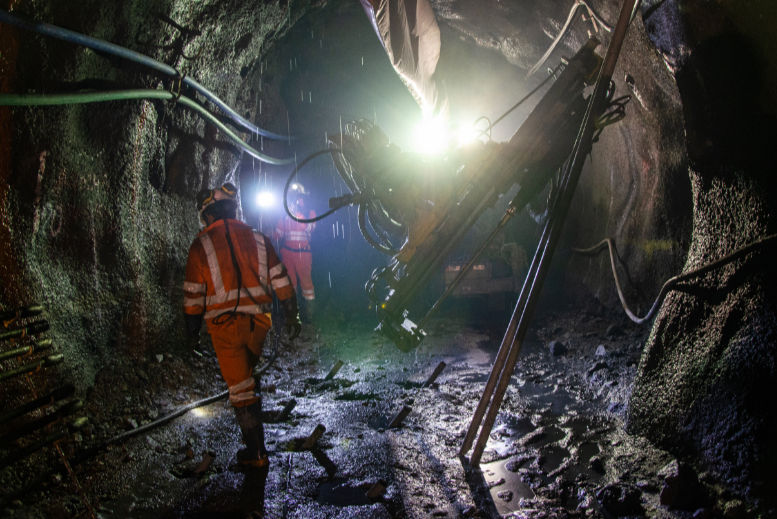
Surface Coal Mining
Remove all rock above the mineral to be mined. It is usually used when the mineral seam is close to the surface of the ground (usually less than 200m.). It can be cheaper and safer but destroys all the associated habitat. Here, methane is given off to the surrounding air. Mitigating this methane is technically difficult and is in early stages of development.
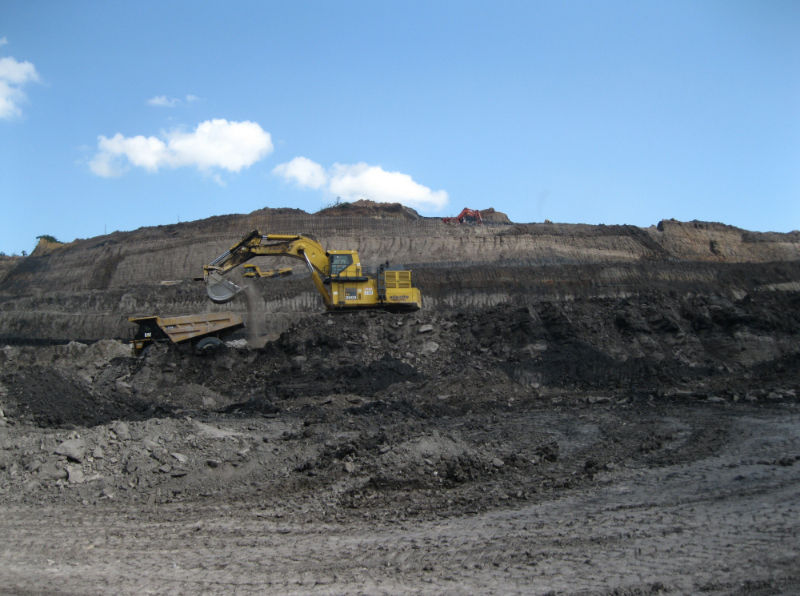
Gassy Mine
Where the coal contains a relatively high amount of gas. The amount differs depending on the coal geology and mine location.
'Low Hanging Fruit'
Because of methane's short lifetime, tackling this gas brings quick climate benefits. According to many climate scientists, rapidly reducing methane emissions is the most effective strategy to keep the 1.5-degree global warming goal within reach. Methane can be concentrated in some geographical regions, so its targeting can be super effective. Aaldert van Amerongen (SRON) of the Dutch Clear Air Consortium used the term 'low-hanging fruit' when considering methane's ease of address when he said, 'This is the low-hanging fruit in the fight against climate change.'
Ventilation Air Methane (VAM)
Methane is produced during coal mining (I have been told that you can sometimes hear a hiss as the gas is discharged from the coal on extraction.) The mine is kept safe by dilution of methane from the coal with fresh air from the surface drawn through the mine by ventilation fans. This air is known as ventilation air. The small methane element of this air is called 'ventilation air methane' or VAM. The amount of methane in 'coal mine air' is relatively low and can vary between mines due to the coal type and actions taken by the industry to ensure it does not pollute the air the miners breathe. VAM is responsible for 60–70% of total methane emissions related to coal mining.
Organic Compound
A chemical compound containing carbon where bonds link one or more atoms of this carbon to other elements (most commonly hydrogen.)
Volatile Organic Compounds (VOCs)
Organic compounds, including methane, that have a high gas pressure at room temperature and low boiling point. They are found in perfumes, but in mining, those in this list are pollutants regulated by law. Most are not toxic but can harm humans and the environment. Methane is a VOC.
Hazardous Air Pollutants (HAPs)
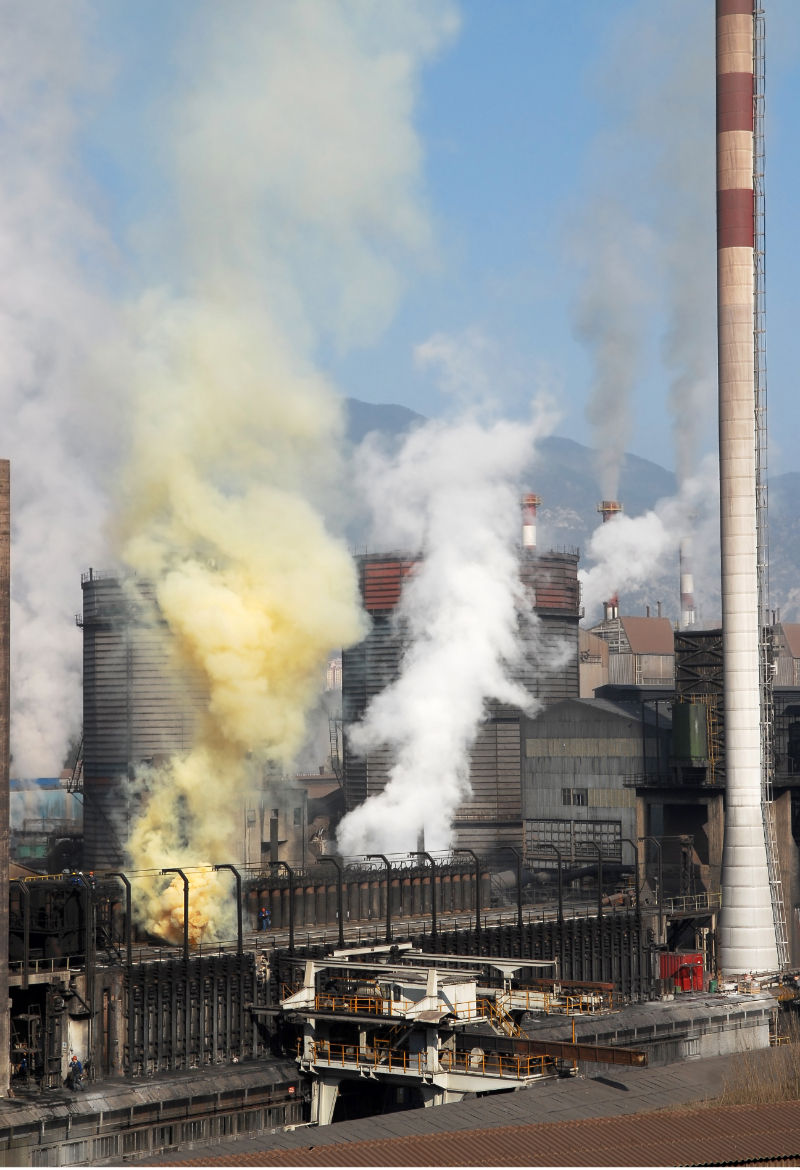
A specific list of pollutants which cause harm to humans and nature. Methane is not on this list, but its derivatives are. These compounds are regulated under law.
Regenerative Thermal Oxidiser (RTO)
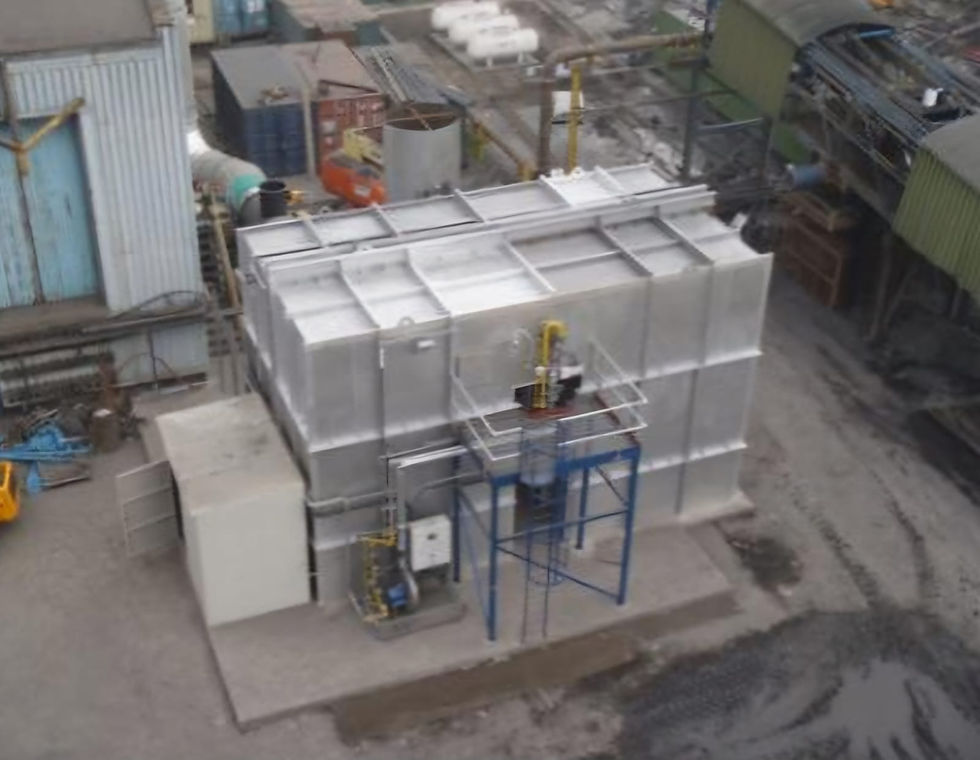
An air pollution control machine that destroys up to 99% of VOCs, HAPs, and odours by converting these harmful gases using heat into CO2 and H2O before releasing them into the atmosphere. These relatively simple structures, in essence, clean the air. Each RTO is set differently depending on the air it purifies and what is the air's constituent parts. Engineers balance three components to get the most effective 'cleaning': time, temperature and turbulence. These wonder machines can produce energy, which the plant can use to reduce costs and carbon footprint.
As methane mitigation devices, they are so important to install now as whilst they are not the most sophisticated answer, they are proven, cost-effective and available now. So why wait? Mining needs to be the next frontier the RTOs conquer.
Catalytic Thermal Oxidiser (CTO)
The next-generation regenerative thermal oxidiser - a pollution control machine like the RTO, but instead it uses a catalyst (something that doesn't chemically change but speeds up a reaction) to reduce the heat needed to convert harmful gases into CO2 and H2O. Precious metals, including platinum, palladium, and rhodium, are used as catalysts depending on the chemical components in the gas to be treated. At the moment, these are just 'concepts' developed by boffins in universities but are the widely agreed successor of the RTO.
Safety Integrity Level (SIL)
A rating scale used in Functional Safety divided into four to rank how likely a component/system is to fail and cause something dangerous. The instruments/systems rated at one have the highest failure rates, with those rated at four being the most robust. The highest-rated products are used in the most dangerous industries, such as nuclear, where failure could have catastrophic effects.
'Nobody Ever Saw Anything Like This Before'
The conference offered a wealth of knowledge and inspiration, the key terms I've recorded above (my memory not being what it used to be), so I can continue to understand and engage as fully as possible. However, by pure coincidence, I stumbled upon an article in The Guardian titled 'Nobody Ever Saw Anything Like This Before,' which explained clearly the other side of the methane coin, the methane generated by Nature. Brazil's minister for the environment, Marina Silva, said:
'We are seeing a collision of two phenomena; one natural, ...and the other a phenomenon produced by humans, which is (resulting in) the change in the Earth's temperature.'

As the release of methane into the earth's atmosphere intensifies climate breakdown, it must be curbed through a comprehensive approach involving both humans and Nature.
The Guardian article's author, Rob Jackson, writes that 'controlling methane provides our best, and perhaps only, lever for shaving peak global temperatures over the next few decades...' as he describes the global catastrophe facing the Amazon, the Arctic, tropical wetlands, increasing ocean temperatures (close to temperatures that could cook salmon), drought, tribes being unable to get help as the rivers they use for transportation had dried up, peat fires, and methane emitting microbes on the rise. The article is shocking in its content, and even the scientists quoted admit how troubled they are with this unprecedented combination of natural and manufactured destructive circumstances.
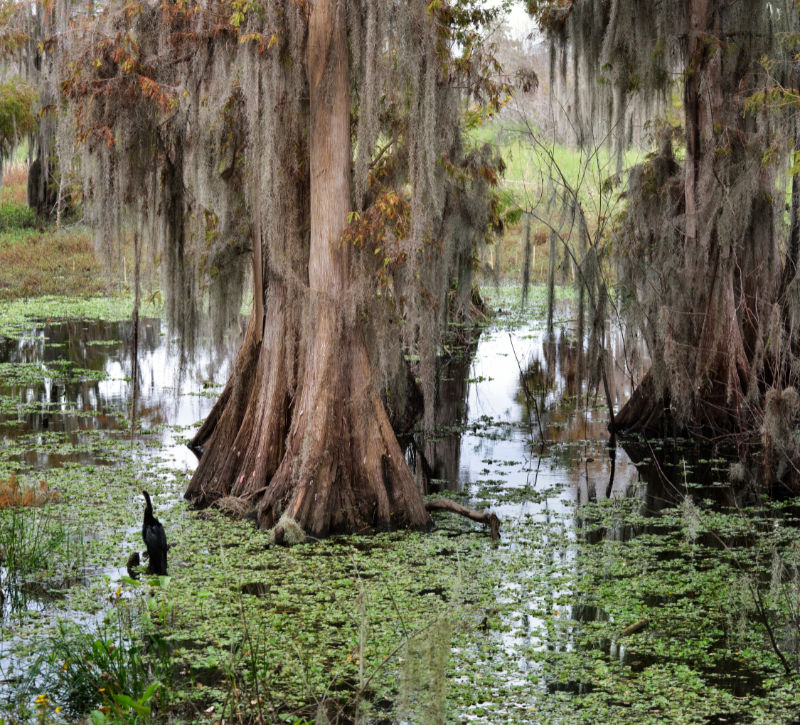
In the past 20 years, humans have emitted over 3 billion tons of methane. Reducing these emissions within a decade or two could prevent 0.5°C of warming, making methane the most impactful greenhouse gas in addressing the climate crisis. However, according to Jackson, we must also address the methane emitted by Nature to save the planet; mine methane mitigation appears to be just part of the answer.
The most significant natural methane discharges originate from wetlands and seasonally flooded tropical forests. These emissions are anticipated to increase with rising temperatures. Tropical wetlands produce so much methane due to their warm, wet, and low-oxygen conditions, which are ideal for the growth of methane-emitting microbes.
Global Citizenship
We must do 'more than sounding alarms...(and turn) climate despair into climate repair.' Robertson
Whilst my efforts to learn, understand, communicate with others, and improve my own living and artistic practices may not appear to be anything more than a drop in the ocean, I echo the beliefs of Laura D'Olimpio (Lecturer in Philosophy, University of Notre Dame Australia) for the need to feel as a 'global citizen' and understand the moral obligation to make efforts to strive for collaborative and cooperative action positively, no matter how small these may appear.
Conclusion

As I reflect on the enlightening experiences from the conference and immerse myself in the language of climate change, specifically the intricacies of methane in mining and Nature, I am enveloped in a sense of purpose and unwavering determination. The profound wisdom extracted from The Guardian article has sparked a fire within me. I now grasp the imperative two-phase mission to mitigate methane in both industry and natural processes. While time may seem fleeting, it's our chance to act boldly. Coupled with this intellectual depth, my global travels throughout Australia have enhanced my understanding of the profound responsibilities of global citizenship and morality. It feels only fitting to conclude this methane mitigation adventure with the immortal words of D'Olimpio, as they encapsulate the enthusiasm I think and the zeal I hold to take into the community arts:
'Seeing ourselves as global citizens involves realising that we all live on and share planet Earth. This involves a shift in our moral perspective whereby we care about others we have never met in countries we have never visited. Being a global citizen involves focusing on what we have in common rather than on our differences.'














